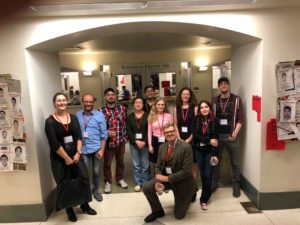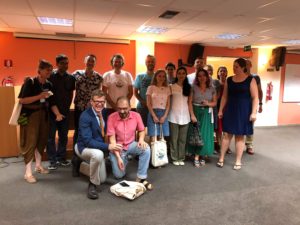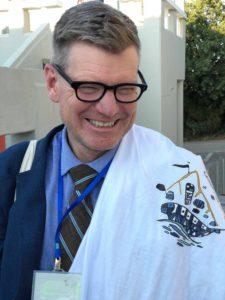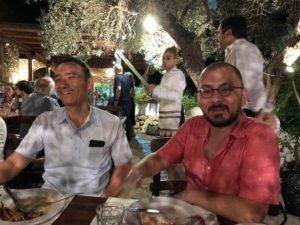The first CLC (Computational Linguistics Community) event of the semester will be a talk on unsupervised learning of phrase structure. The talk will be at 4pm on November 15th and will take place as part of the new Neurolinguistics Reading group. All are welcome! Please see below for more details.
TITLE:
Unsupervised Latent Tree Induction with Deep Inside-Outside Recursive Auto-Encoders
AUTHORS:
Andrew Drozdov*, Pat Verga*, Mohit Yadav*, Mohit Iyyer, Andrew McCallum
ABSTRACT:
Syntax is a powerful abstraction for language understanding. Many downstream tasks require segmenting input text into meaningful constituent chunks (e.g., noun phrases or entities); more generally, models for learning semantic representations of text benefit from integrating syntax in the form of parse trees (e.g., tree-LSTMs). Supervised parsers have traditionally been used to obtain these trees, but lately interest has increased in unsupervised methods that induce syntactic representations directly from unlabeled text. To this end, we propose the deep inside-outside recursive auto-encoder (DIORA), a fully-unsupervised method for discovering syntax that simultaneously learns representations for constituents within the induced tree. Unlike many prior approaches, DIORA does not rely on supervision from auxiliary downstream tasks and is thus not constrained to particular domains. Furthermore, competing approaches do not learn explicit phrase representations along with tree structures, which limits their applicability to phrase-based tasks. Extensive experiments on unsupervised parsing, segmentation, and phrase clustering demonstrate the efficacy of our method. DIORA achieves the state of the art in unsupervised parsing (48.7 F1) on the benchmark WSJ dataset.
LOCATION:
ILC N400















